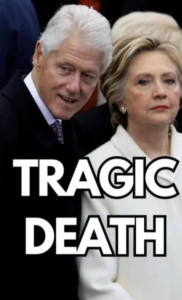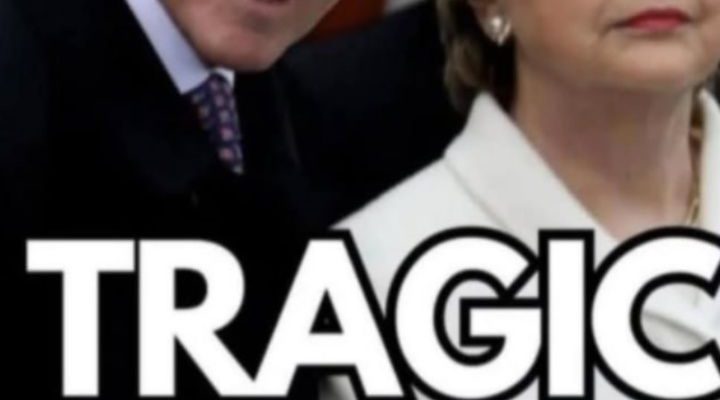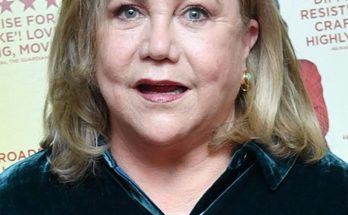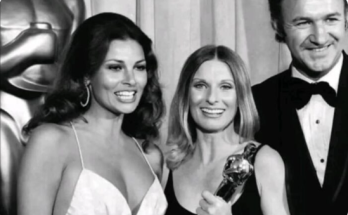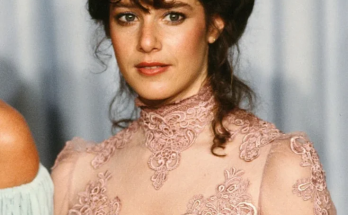Bill Clinton Breaks Down During Shocking Announcement — A Moment That Stunned the Nation
Former President Bill Clinton has always been known for his charisma, resilience, and ability to command a room with words. But on a recent somber afternoon, the world saw a side of him rarely revealed to the public: raw, emotional vulnerability. In a moment that took reporters and viewers by surprise, Clinton broke down in tears while delivering a shocking announcement that left many questioning what the future might hold.
The press conference was called with little advance notice. No topic had been announced ahead of time, but whispers circulated through political and media circles that something “deeply personal” was on the horizon. Speculation ranged from a memoir update to health news or even an international initiative. But no one was prepared for what came next.
Standing at the podium, looking older and more worn than we’ve seen him in recent years, Clinton began his speech slowly, his voice tinged with a heaviness that immediately set a serious tone. Behind him stood his longtime chief of staff, a family representative, and a visibly emotional Hillary Clinton, her hand resting over her heart.
Clinton opened with a quiet statement: “There comes a time in life when the truth, no matter how painful, must be spoken—not for headlines, not for legacy, but for peace.”
At first, listeners leaned in with curiosity. Then came the first revelation: Clinton admitted to a long-hidden health condition he had been battling in private for years.
“Three years ago,” he said, “I was diagnosed with a degenerative neurological disorder. It’s been slow-moving, but it’s progressing faster now. I’ve kept it from the public eye because I didn’t want pity. I wanted time.”
Gasps echoed in the press room. Reporters dropped their pens. The idea of a former U.S. president—a figure still active in global affairs—facing a debilitating illness was hard enough. But that wasn’t the only revelation he had come to deliver.
As Clinton continued, he grew visibly shaken. His hands trembled slightly as he took a sip of water. Then, in a moment of total honesty, he addressed the emotional weight of his past—something he had rarely done in such a public and open forum.
“There’s a lot I’ve done in my life I’m proud of. And there are things I deeply regret,” he said, pausing to gather himself. “In the final chapters of my life, I want to confront both.”
And then, with tears in his eyes, he delivered the second bombshell: a formal, public apology—not for political reasons, not wrapped in legalese or spin—for the way he handled his relationship with Monica Lewinsky and the trauma it caused not just to her, but to countless others.
“To Monica: I want to say this directly—what happened wasn’t just a mistake in judgment. It was an abuse of power. I was the President. You were a young intern. That imbalance created harm you didn’t deserve. And for the years of public shame you endured, I am deeply, truly sorry.”
The room fell completely silent.
This wasn’t just a headline-grabbing moment—it was history.
“I’ve apologized before,” he continued, voice cracking, “but never like this. Not without the filters, not without the political strategists. I want to clear my soul before I no longer have the time to.”
Tears streamed down his cheeks as Hillary reached out to gently steady him. He looked at her with visible gratitude.
“I wouldn’t be standing here if not for the forgiveness of my wife,” he said. “She carried burdens that were not hers to bear. She gave me grace I often didn’t deserve.”
What followed was a reflection unlike anything we’ve heard from a former president. Clinton spoke about legacy—not just in the traditional sense, but in how we impact the people around us. He discussed his foundation, his work in global health, and his commitment to the next generation of leaders.
But what struck the audience most was his plea for kindness.
“We don’t know what others carry,” he said. “So many people are walking around holding pain—old mistakes, lost time, silent battles. I carried mine quietly, but not anymore. I hope that by speaking my truth, someone else will find the courage to forgive themselves too.”
By the end of the announcement, Bill Clinton had not only shocked the world with his medical revelation but had also opened a window into his soul that few expected to ever see. He spoke not like a politician, but like a man nearing the sunset of his life, seeking peace and purpose.
As he stepped away from the podium, the room erupted—not with applause, but with silence and reverence. A reporter in the front row wiped away tears. Cameras caught the moment Hillary took his hand and gently kissed it before walking with him off the stage.
In the days following the announcement, reactions poured in from around the globe. Monica Lewinsky herself issued a brief but powerful statement on social media:
“Acknowledgment matters. Words matter. Healing is possible. Thank you.”
Political leaders—both Democrat and Republican—praised Clinton’s honesty, many expressing support and gratitude for his candor. Former President Barack Obama posted:
“True leadership isn’t always about power. Sometimes, it’s about vulnerability. Thank you, Bill, for showing us both.”
As for the American public, the response was mixed—but overwhelmingly compassionate. People debated the timing, questioned motivations, and speculated on what the disorder might be. But amid the political noise, one truth rang louder than the rest: people saw a human being confronting his own mortality, trying to make things right.
